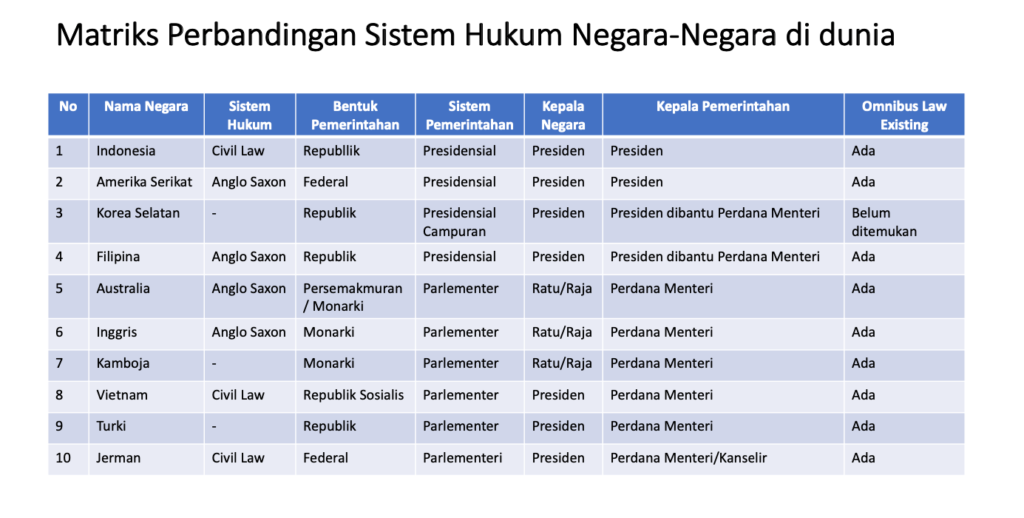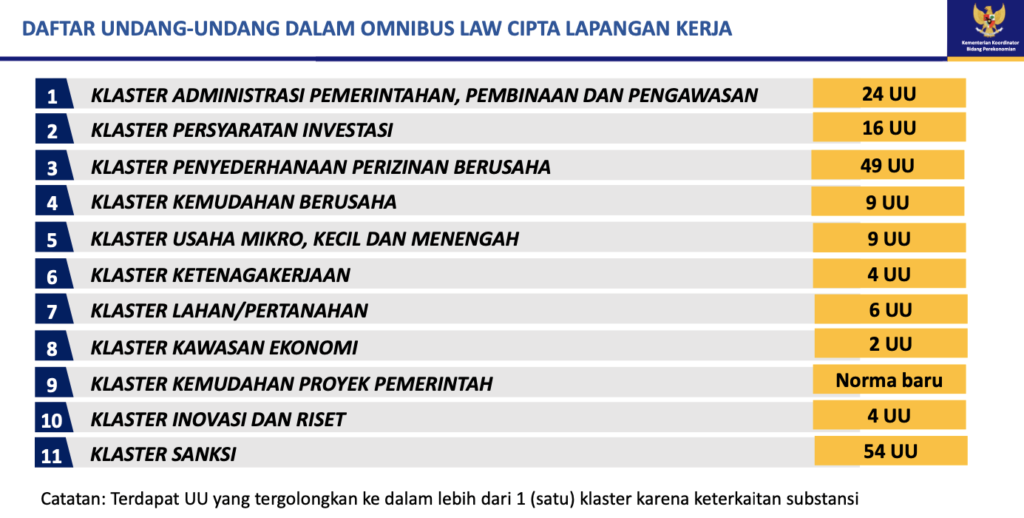Joko Widodo in his inauguration speech as President of Republic Indonesia for the period of 2019-2024 said that he would propose the issuance of two major laws, namely the Employment Creation Act and the Small Micro Medium Enterprise (UMKM) Empowerment through Omnibus Law scheme. Through this scheme, the government wants to simplify, trim and remove dozens of regulations at the level of Law that overlap and hamper the ease of investment. Omnibus Law is considered to be more effective and efficient in changing some legal norms in the Act, so this also called the Sapu Jagat Law.
One of the scopes in Omnibus Law is the law in Natural Resources sector-both in mining, plantation, and environment. In discussing what exactly Omnibus Law is and how the development process and efforts to synchronize Omnibus Law with regulations on the mining and natural resources sector, PWYP Indonesia held PWYP Knowledge Forum (PKF) last Tuesday, (3/12) at PWYP Office in Jakarta.
PKF is a discussion and knowledge sharing forum that regularly held by PWYP Indonesia, to increase understanding and capacity, and develop public discourse related to current issues and policies, such as Omnibus Law discourse. The discussion that was held in the rooftop area, invited Dr. Ahmad Redi S.H., M.H., Lecturer at Tarumanagara University, who is also a member of the Omnibus Law Formulation Team, Ministry of Economic Affairs.
According to his statement, Ahmad Redi and the team claimed that they have completed the Academic Paper and the Omnibus Law draft since November 13th. The plan, this draft will be formally submitted by the President to the Parliament on next December 13th.
Through his study, Ahmad Redi explained that there are at least 10 countries that have implemented the Omnibus Law, including the United States, Australia, Vietnam, and Germany. This becomes a basic consideration for the Government of Indonesia to take part in implementing Omnibus Law in several strategic sectors including natural resources.
“In fact, Indonesia has actually applied the Omnibus Law concept in Government Regulation to Replace Law Number 1 year 2017 concerning access Financial Information for taxation and Law number 23/2014 concerning Regional Government, although it was not yet named as “Omnibus Law” and only included changes to a number of laws,” said Ahmad Redi.

As Coordinator of the Omnibus Law team in the Ministry of Energy and Mineral Resources (MEMR) and Natural Resources, Ahmad Redi said that there had been a lot of discussion in the drafting process, considering that the natural resources sector, especially in mining which vital and had major implication for the environment and the livelihoods of many people.
Finally, there are 75 laws that allegedly affected by the Omnibus Law the Employment Creation. The 75 Laws are categorized into 11 clusters which add up to 177 laws. The clusters consist of sanction cluster (54 laws), the simplification of business licensing clusters (49 Laws), the Government Administration Clusters, Coaching and Supervision (24 Laws), and the Investment Requirement Cluster (16 Laws).

Maryati Abdullah, PWYP Indonesia’s National Coordinator, highlighted the government’s discourse that the Omnibus Law was carried out in order to ease the investment licensing, and tighten supervision. According to her, both the prior (before licensing) and post (control and law enforcement) sides have the same importance. This means that license issuance mainly in the mining sector remains crucial because the public can know and assess the existing licenses. Moreover, added Maryati, the government supervision system in the mining sector has been relatively weak.
“On the one hand we see positive intentions, but on the other hand we still very doubtful in terms of capacity, budget, and human resources adequacy. For example in the mining sector, the lack of mine inspector in ensuring coordination the initial license without the Omnibus Law alone remains a big question, moreover with the Omnibus Law?” asked Maryati.
Therefore, Maryati proposes a mature transition and efforts to increase the human resources capacity within the government structure to ensure the implementation plans and prerequisites needed are met. This is considered very important in order to prevent new conflicts between related parties that make counter-productive policies.
Other questions raised by participants related to the discourse on the elimination of Environmental Impact Analysis (AMDAL) and building permit (IMB) which had been raised by the Minister of Agrarian and Spatial Planning, Sofyan Djalil, and continued by his deputy, Surya Tjandra.
According to Ahmad Redi, AMDAL will still be available for business categorized as a “high risk” level according to the determination of the business risk scheme. While for the business in the category “middle risk” and “low risk”, the business license is sufficient to refer to the Spatial Detail Plan (RDTR) and the Environmental Management Efforts (UPL/UKL). The determination of the categorization of these types of companies will be regulated further in a Government Regulatopm (PP).
Meanwhile, the idea of the removal of the building permit, said Ahmad Redi, was still under consideration. However, the building permit will be replaced by other prerequisites where every development plan by the developer must be based on ISO standard and or professional certificate. This thing, he added, besides to facilitate business licensing, was also intended so each form of violation could later be dealt with administratively, which meant it was no longer targeting criminal individuals/owner but rather company or professional licenses that had previously been given authority. (AA).